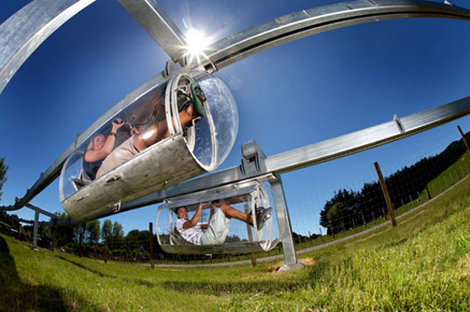Civil Engineering

Think big, think infrastructure, think civil engineering. Civil engineers design and build some of the world’s biggest, most muscular structures, from interstate highways and bridges to dams and airports to water-treatment plants and power stations.
Make a Difference!
Clean water is essential to life, yet too often it is a precious and scarce commodity in developing countries, especially those hit by wars or natural disasters. Civil engineers are at the forefront of efforts to design inexpensive yet effective ways to ensure that people living in these regions have access to potable water.

Did you know?
Civil engineers of the future will truly be on the move — their skills will be needed to construct the rail beds for magnetic levitation trains, and to create the modular structures for planned human outposts on the moon and Mars.
Where Do They Work?
Civil engineers work in many areas essential to modern life. Industries or companies that typically employ them include the big engineering/construction/architectural firms (CH2M Hill, Bechtel Corp., Arup), environmental specialists (Meliora Environmental Design), rail and ground transportation groups (CSX Corp.), and power generators (Southern Co.). Many also work for state agencies, including public works and highway departments, or the federal government (Department of Transportation, U.S. Army Corps of Engineers).
Meet An Engineer!
Marc Edwards is a professor at Virginia Tech, and is considered a leading expert in urban water supplies. His highest-profile research was in 2003 in Washington, D.C., where he and his graduate students determined that the city’s drinking water contained drastically high levels of lead — a toxin linked to birth defects. The cause, Edwards determined, was a disinfectant added to the water that caused lead to leach from pipes.
COOL FACT: Edwards has received many awards and honors for his work. Time magazine in 2004 called him one of nation’s top scientists. Better yet, in 2007 he was named one of that year’s MacArthur Fellows. Also called the “genius awards,” MacArthur grants provide honorees with a $500,000 stipend over five years.
Watch this video of Marc Edwards:
Find out the latest civil engineering news!
Filed under: Civil, Explore Engineering
Tags: Civil











